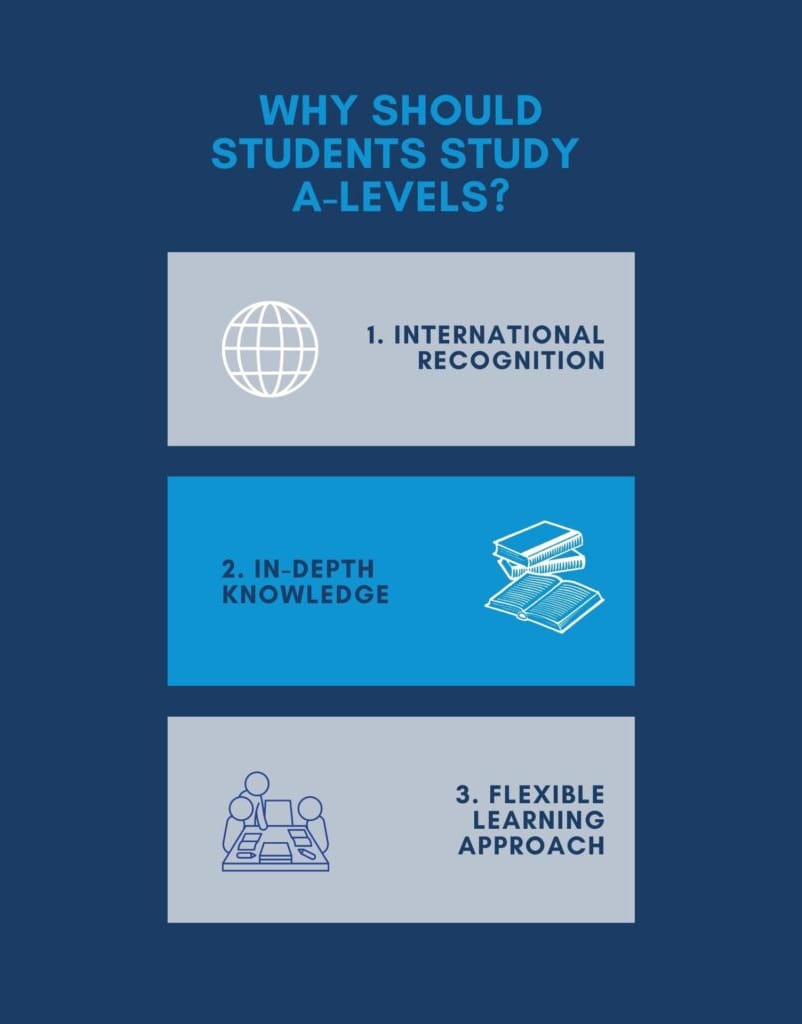IGCSE vs. A-Levels: Choosing the Right Path for You

Navigating the world of international education can be complex, especially when it comes to choosing between IGCSE and A-Levels. Both qualifications have their unique features, benefits, and pathways they offer to students. Understanding the key differences and similarities between them can help students and their families make an informed decision that aligns with their academic goals and future aspirations. In this blog post, we'll explore IGCSE and A-Levels in detail, examining their structure, subjects offered, assessment methods, and how each can shape your educational journey and career prospects.

IGCSE: A Broad Foundation
The International General Certificate of Secondary Education (IGCSE) is a globally recognized qualification for students typically aged 14-16. It provides a broad study program by drawing from a range of subjects:
- Subjects Offered: IGCSE offers a wide array of subjects including languages, humanities, sciences, and mathematics, allowing students to explore a diverse curriculum. Subjects like Accounting, Biology, Chemistry, English, Mathematics, and Physics, among others, are offered, catering to a wide range of interests and career paths.
- Flexibility and Breadth: One of the key features of the IGCSE is its flexibility, offering both core and extended papers in many subjects to cater to students of different ability levels. This enables students to tailor their studies to their strengths and interests, fostering a comprehensive understanding across a broad spectrum of subjects.
- Assessment Method: IGCSE assesses students through exams at the end of the course, focusing on a wide range of skills including knowledge recall, application, and analytical abilities. This can prepare students well for further academic pursuits by developing a solid foundation of understanding across different subjects.

A-Levels: Specialized Depth
Advanced Level qualifications (A-Levels) are subject-based qualifications that students can take after IGCSEs, typically aged 16-18. A-Levels are highly regarded by universities and employers worldwide:
- Subjects and Specialization: A-Levels offer students the opportunity to specialize in specific subjects of interest. Students typically choose 3-4 subjects, allowing for in-depth study and understanding. This specialization can be beneficial for students who have a clear idea of their desired university course or career path.
- Assessment and Depth: A-Level assessments are rigorous, with exams taken at the end of the course. They are designed to test not only a student's knowledge but also their ability to analyze, evaluate, and apply their understanding in a more in-depth manner than IGCSEs.
- Preparation for Higher Education: The depth and rigor of A-Levels are particularly effective in preparing students for the challenges of higher education. Specializing in subjects that are relevant to their intended university course gives students a significant advantage.

Choosing the Right Path
The choice between IGCSE and A-Levels depends on several factors including academic interests, future career goals, and learning preferences. IGCSE offers a broad foundation, beneficial for students who wish to explore a wide range of subjects before specializing. A-Levels, on the other hand, are suited for students who already have a clear idea of their interests and wish to delve deeper into those areas in preparation for university studies.

Conclusion
Both IGCSE and A-Levels offer pathways to success, with each catering to different needs and aspirations. By understanding the unique aspects and opportunities each qualification provides, students and their families can make choices that align with their academic and career goals, laying a solid foundation for future success.




